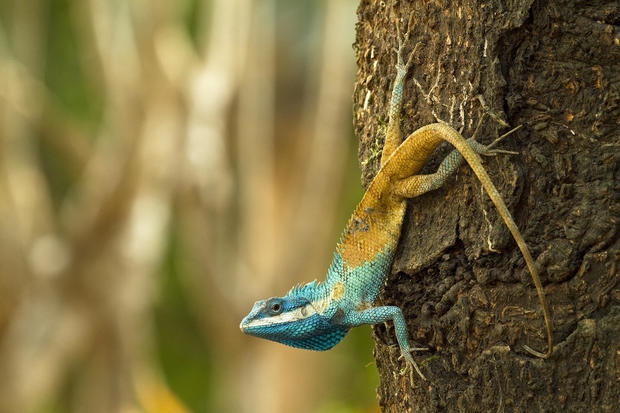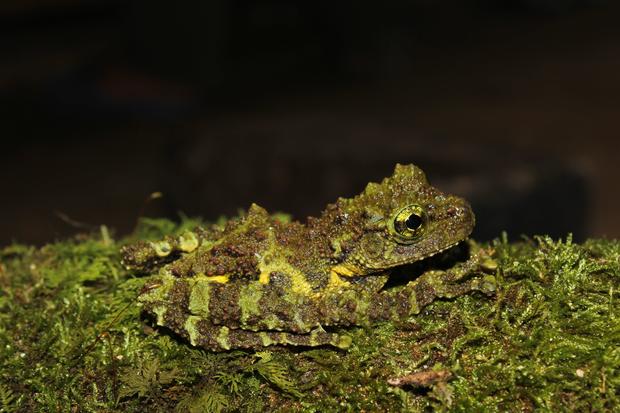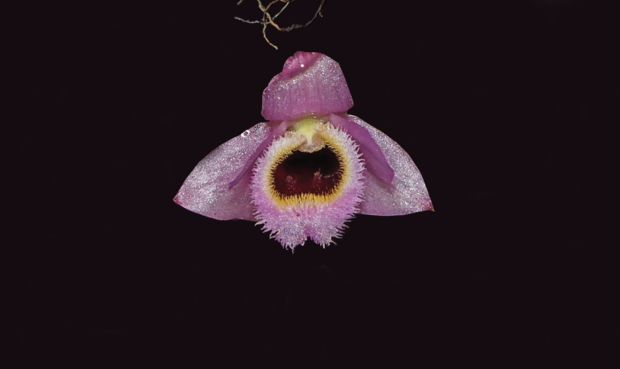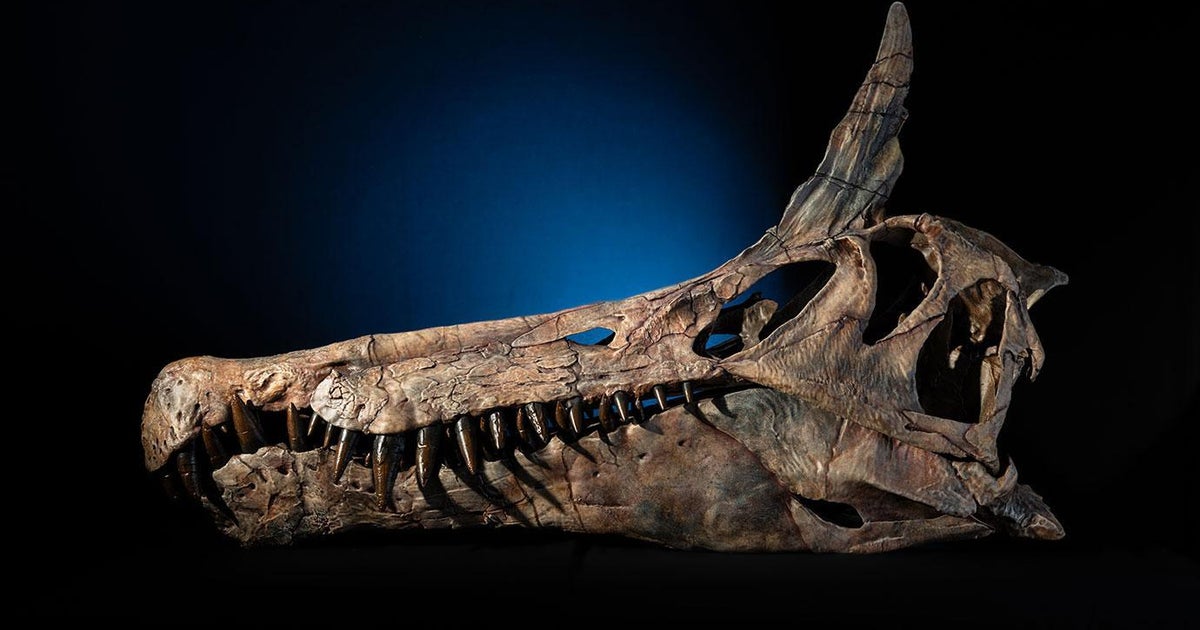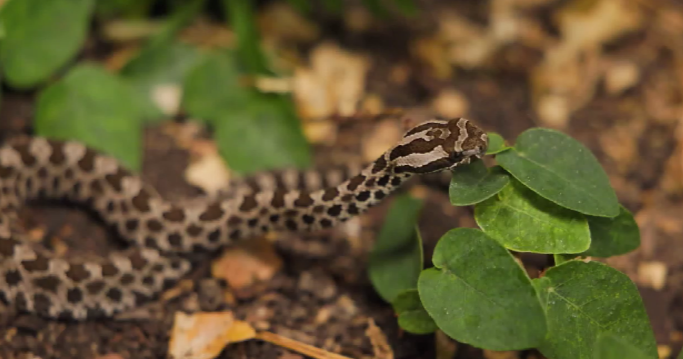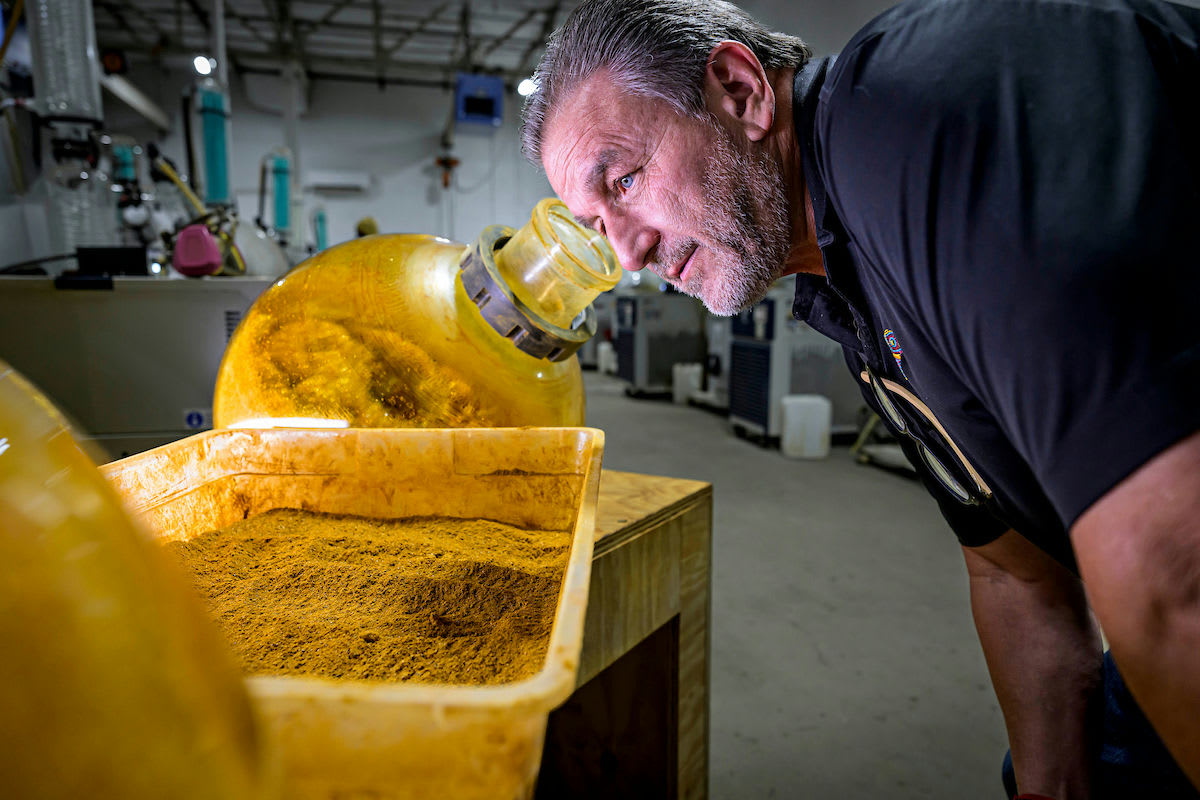A color-changing lizard and "Muppet" orchid are among 380 newly found species – many of which are under threat
A venomous snake named after a mythological goddess, an orchid that looks like a Muppet, a tree frog with skin that looks like moss and a tree-climbing lizard that changes colors are among hundreds of new species that were recently discovered across Asia. But according to a new report by the World Wildlife Fund, many of the 380 new species are already at risk of going extinct.
All of the species were found across southeast Asia's Greater Mekong region – which includes Cambodia, Laos, Myanmar, Thailand and Vietnam – in 2021 and 2022. That area is known for being home to some of the world's "most biologically diverse habitats," according to the WWF, with thousands of species of plants and animals.
A new report from the group published on Monday details the discovery of new species of 290 plants, 19 fishes, 24 amphibians, 46 reptiles and one mammal across the area. But while the new species found were described as "remarkable" by the WWF, the group also offered a warning for many.
Tylototriton thaiorum, otherwise known as the Thai crocodile newt, for example, is only known to live in one area in Vietnam and is already considered to be an endangered species. The WWF says that the area in which the newt is known to live is suffering from habitat loss because of expanding agriculture and logging, as well as communities collecting the creature to treat abdominal pain and parasitic infections.
Vietnam is also home to the newly identified Theloderma Khoii, a frog whose color and patterns make it look as though it's covered in moss as a form of camouflage. But the report says that road construction and illegal logging threaten the forests in which it lives, leading researchers to believe it should also be considered endangered.
And it's not just animals that are under threat. Nepenthes bracteosa and Nepenthes hirtella, two new species of pitcher plants, "have immediately been classified as Critically Endangered," the WWF said in its report. Both plants are found only on "a single hilltop" in southern Thailand, meaning that "any significant disturbance or deteriorating in their habitat could put them at risk of extinction."
Cambodia's Dendrobium fuscifaucium — a miniature orchid that resembles the Muppets who sing the song "Mah Na Mah Na" — is not specifically said to be endangered in the report, but the organization describes it as an "unusual discovery" that researchers are struggling to find in the wild. They stumbled upon the species from a nursery collection, whose owner said they bought it from a local wild plant vendor who said they found it in the wild.
"The discovery of this new species only underlines the importance of protecting these delicate plants," the report says.
Truong Nguyen of the Vietnam Academy of Science said that the status of these newly dubbed species shows the "tremendous pressures" the region is facing, both from economic development and human population growth. These issues, he said in a foreword in the report, "drive deforestation, pollution and overexploitation of natural resources, compounded by the effects of climate change."
"More concerted, science-based and urgent efforts need to be made to reverse the rapid biodiversity loss in the region," he wrote. "Using the critical evidence base that is laid by scientists, we all need to urgently invest time and resources into the best ways to conserve the known and yet unknown species."
